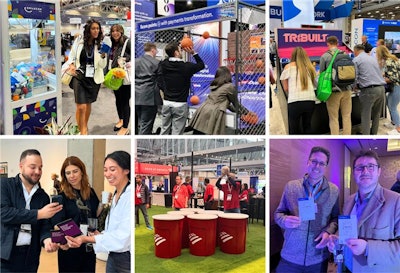In the corporate world, success is often measured by hard numbers—sales figures, conversion rates, and the ever-looming return on investment (ROI). But there’s another metric that carries just as much weight: Return on Relationships (ROR).
In an era where consumers and employees crave authentic connections, fostering meaningful relationships is just as valuable as financial gains. And when it comes to cultivating these relationships, Interactive Entertainment Group tells us experiential events are one of the most powerful tools in the arsenal.
What is Return on Relationships (ROR)?
ROR goes beyond financial return, emphasizing the long-term value of authentic engagement. It’s about building trust, loyalty, and meaningful interactions that translate into stronger partnerships, brand advocacy, and lasting customer relationships. Whether it’s through client appreciation events, employee engagement initiatives, or interactive brand activations, experiences that prioritize human connection pay dividends far beyond a balance sheet.How Experiential Events Drive ROR
1. Prioritizes Engagement Over Observation
Traditional events often rely on passive participation—keynotes, panels, and structured networking that don’t always spark genuine connection. Experiential events, on the other hand, encourage active involvement, fostering organic interactions that build trust and camaraderie. Activities that require collaboration or competition create opportunities for attendees to engage in meaningful ways, strengthening both personal and professional relationships.
2. Creates Shared Moments
Relationships thrive when people share memorable experiences. Whether it’s working together toward a common goal or engaging in friendly competition, these interactions cultivate stronger bonds. Moments that inject team building, problem-solving, and laughter create lasting impressions that deepen connections and reinforce positive brand associations.
3. Encourages Organic Advocacy
People naturally share experiences that captivate them. When an event delivers an unexpected or highly engaging moment, like this one, attendees feel compelled to capture and share it, extending the brand’s reach beyond the event itself. The more immersive and interactive the experience, the more likely it is to generate authentic word-of-mouth advocacy and social media buzz.
4. Personalizes the Experience
A one-size-fits-all approach rarely resonates. Providing opportunities for attendees to engage in ways that align with their interests makes experiences more meaningful. Whether through tailored interactions, customized takeaways, or AI-powered experiences, personalization strengthens emotional connections and reinforces brand loyalty.
5. Sustains Relationships Beyond the Event
The most successful experiential events don’t end when attendees walk away—they create lasting impressions that continue to influence relationships over time. Follow-up touchpoints, digital engagement, and interactive content help maintain connections and keep the brand top of mind. A well-designed experience leaves attendees with more than just a memory—it leaves them with a sense of belonging.
The Bottom Line
In today’s experience-driven economy, relationships are currency. Investing in ROR means investing in long-term brand loyalty, deeper client connections, and an engaged workforce. Interactive Entertainment Group designs experiences that go beyond entertainment, helping brands cultivate lasting relationships that drive real value.After all, the best return isn’t just on investment—it’s on relationships. Click HERE for more relationship-focused entertainment inspo from Interactive Entertainment Group.




















